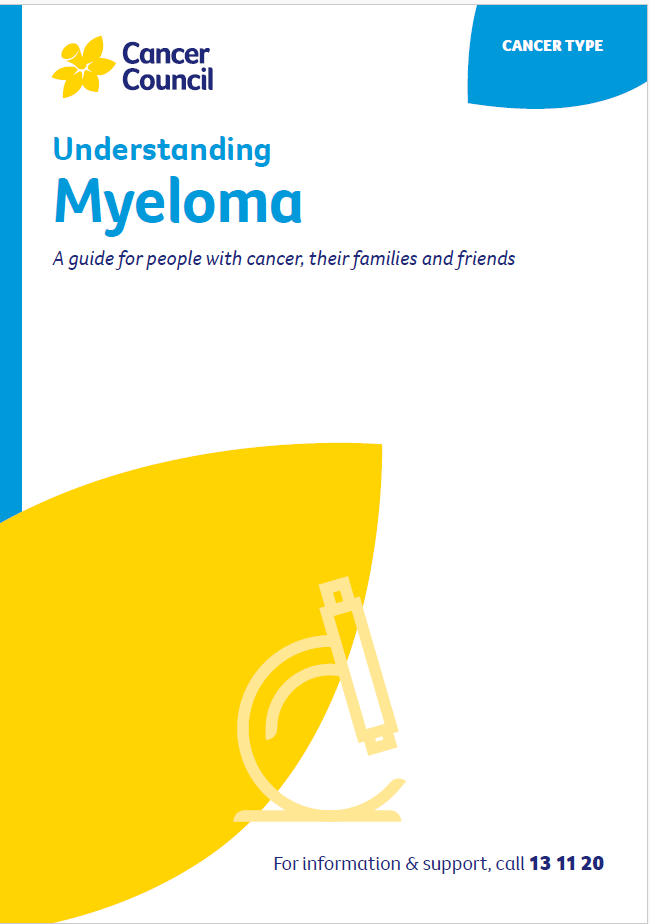Symptoms of myeloma
Myeloma can cause a range of symptoms because of its effect on the bones, bone marrow, blood, urine and kidneys.
The most common symptoms of myeloma include:
- bone pain or an unusual broken bone (from a minor impact or not caused by an obvious injury)
- frequent infections or an infection that is hard to shake off
- fatigue or tiredness, shortness of breath or a racing heart, caused by a low level of red blood cells (anaemia)
- kidney problems, which may be caused by excess amounts of paraprotein produced by the myeloma cells. The symptoms of kidney problems may include frothy urine (wee or pee), passing too much or too little urine, nausea (feeling sick), weight loss or fluid retention (puffiness or swelling in the body)
- feeling sick, drowsy or confused, because of too much calcium in the blood (hypercalcaemia)
- abnormal blood counts, because myeloma cells may stop the bone marrow from making enough normal blood cells.
Other conditions can cause these symptoms, so these changes do not mean you definitely have myeloma. If you are worried or have ongoing symptoms, see your general practitioner (GP).
For an overview of what to expect at every stage of your cancer care, visit Your guide to best cancer care: Multiple myeloma. This is a short guide to what is recommended, from diagnosis to treatment and beyond.
→ READ MORE: Myeloma diagnosis
Podcast for people affected by cancer
Listen now
More resources
Dr Ian Bilmon, Haematologist, Westmead Hospital and The Sydney Adventist Hospital (Clinical review); Martin Boling, Consumer; Catherine Bowley, Specialist Myeloma Nurse, Myeloma Australia; Dr Samuel Dickson, Radiation Oncologist, Calvary Mater Newcastle; Rachelle Frith, Clinical Nurse Consultant, Haematology, Prince of Wales Hospital; Dr Wojt Janowski, Haematologist, Calvary Mater Newcastle; Yvonne King, 13 11 20 Consultant, Cancer Council NSW. We would like to thank all the health professionals, consumers and editorial teams who have worked on current and past editions of this title.
View the Cancer Council NSW editorial policy.
View all publications or call 13 11 20 for free printed copies.

